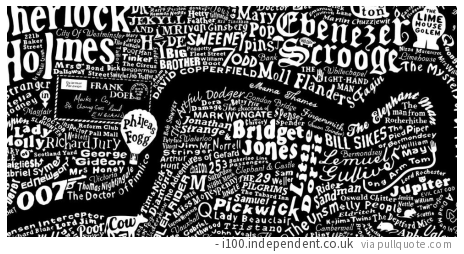Recent quotes:
The Bookseller - Comment - The tragedy of tariffs
I have concluded that the US policies of currency depreciation, defunding of the National Endowment for the Humanities (NEH), attempted elimination of the Institute of Museum and Library Services (IMLS), the imposition of fines on Columbia and other universities, the dismantling of the Department of Education (DOE), and much else are not fair and, specifically, have created a potential loss of 20% of authors’ earnings from US sales. Reluctantly, I have been forced to raise the prices of all Mensch titles in the US. A 20% increase would clearly damage unit sales significantly and thus I have restricted myself to an average 10% increase across the range. These increases will have immediate effect. Prices in all other territories, including Canada, China, Australia, Mexico, the EU and the UK, have been frozen.Agents, Authors Question HarperCollins AI Deal
The deal is for a three-year period, and authors must opt in, per PW’s source. For those authors who do opt in, the deal provides for a $5,000 fee per book, split evenly between the author and the publisher at $2,500 each; payments will be not counted against author royalties. Crucially, agents confirmed that the deal is effectively a one-off, implemented via contract addenda, and does not seek to establish a new AI licensing right. Sources also confirmed that the unnamed AI company has agreed to several protective terms, including a commitment to limit verbatim reproduction and an agreement not to train on pirated content.HarperCollins Confirms It Has a Deal to Sell Authors' Work to AI Company
On Friday, author Daniel Kibblesmith, who wrote the children’s book Santa’s Husband and published it with HarperCollins, posted screenshots on Bluesky of an email he received, seemingly from his agent, informing him that the agency was approached by the publisher about the AI deal. “Let me know what you think, positive or negative, and we can handle the rest of this for you,” the screenshotted text in an email to Kibblesmith says. The screenshots show the agent telling Kibblesmith that HarperCollins was offering $2,500 (non-negotiable).2022 Full Year Market Report | LUMA Partners
Both the Ad Tech index (“LUMA.A”) and the MarTech index (“LUMA.M”) were down substantially this year (59% and 52%, respectively) alongside the broader tech market, with Nasdaq-100 down 33%.Unsold book returns in coming weeks could be another blow for publishers | The Star
“If we just look at physical bookstores, so not online retailers, but mostly physical bookstores, they’re down almost 63 per cent year over year for the period,” Genner said from Toronto. “So 63 per cent in unit sales. That is hugely significant.”Amazon Claims to Accurately Measure Pages Read in Kindle Unlimited, Neglects to Mention There's no Standard Page Size | The Digital Reader
The thing is, folks, if one page in Book A is equal to 1.2 pages in Book B and 0.8 pages in Book C then it really doesn't matter how carefully Amazon counts the pages. Any count reported by Amazon is fundamentally bullshit because there is no single standard page size. Let me phrase it another way: Amazon's accounting system in Kindle Unlimited is broken on a fundamental level.The literary map of London is just beautiful

Getting a book into the world, it turns out, is an enormous endeavor, one based, still, on old-fashioned person-to-person communication. Yes, a book can be physically produced in a handful of weeks, but it takes a human being reading it, understanding how to talk about it, and suggesting it in person to another human being (who happens to run a retail outlet that suggests books to a community of human beings) for your book to actually make it into the world. Multiply that process by the number of booksellers, magazine editors, book reviewers, bloggers, social media loudmouths and public radio nerds nationwide and this takes some time. The upshot of this for the writer is you have a year to move on, start something else, and distance yourself from the material. By the time your first grade teacher and all your exes are reading it, it feels a little like somebody else wrote it. And I’ve found that to be very helpful.
The most disheartening readings usually occur in bookstores, where crowds often swell to three or four people, at least one of whom has shown up to take a nap, and another who has misread the store schedule and come to the wrong reading. In Boston, a woman approached me after the Q. and A., her face tense with anguish and disappointment. “I thought you were going to be Alice McDermott,” she said. “So did I,” I said.
Once upon a time there was (insert a name who exemplifies your target customer/consumer) …. . Every day he/she (insert here his/her frustration or job to be done) …. . One day we developed (insert here the product/solution and what are actually the 2-3 things we offer or not) … . Until finally (insert here the end result for the customer/consumer compared to competition) … .
